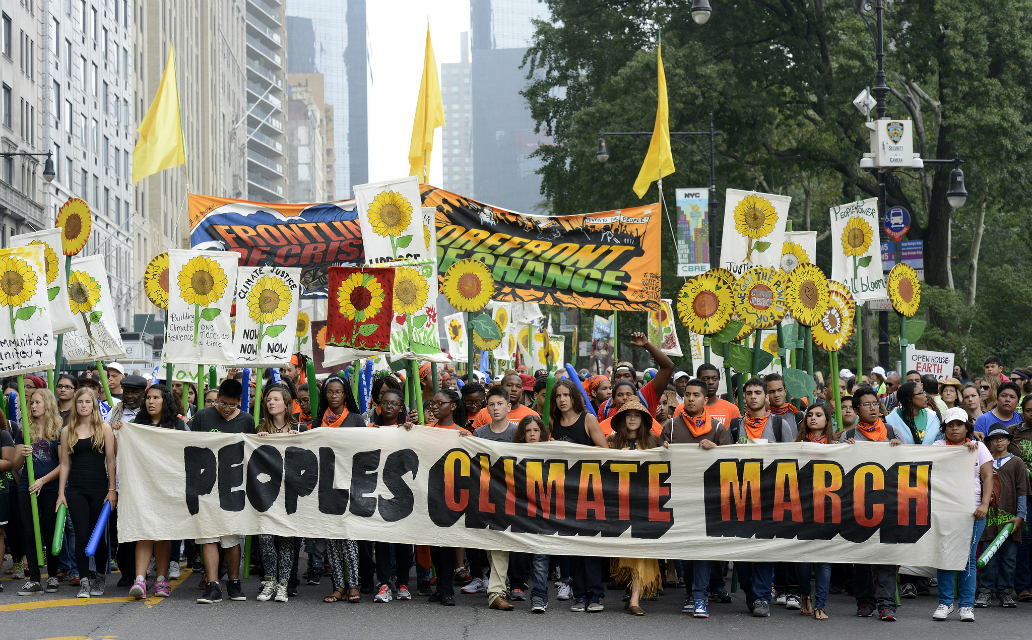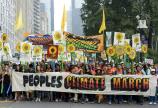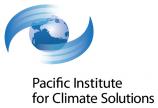How to motivate climate-friendly behaviour

Want to encourage climate-friendly behaviour, but not sure how to motivate change?
A new report from the University of Victoria-led Pacific Institute for Climate Solutions (PICS) provides answers, based on a review of environmental psychology research in western industrialized society spanning the past four decades.
The white paper, Social Mobilization: How to Encourage Action on Climate Change, explains the psychological research and theories on why people adopt (or don’t adopt) climate actions such as conserving power, energy-retrofitting homes, and choosing clean transport and less-impactful diets.
The paper explores how psychological theories—broadly described as rational choice (weighing the personal pros and cons), altruism (how others or the environment can benefit), multiple motivations, and overcoming psychological barriers (such as perceived risks or social factors)—have been incorporated into strategies aimed at boosting climate action.
It then looks at real campaigns run by North American utility companies and others, to learn which campaign elements are the most effective.
Report co-author and University of Victoria psychologist Robert Gifford says the traditional approach taken by utilities to promote energy conservation has been to package information with incentives, such as rebates, pricing strategies and penalties. But he says the evidence shows campaigns that target personal motivations or values, as well as wallets, have a better chance at changing behaviour.
“Appealing to personal identity and values can be significant motivators, particularly if the information and feedback they receive is targeted to them and is therefore relatable to their daily lives.”
Providing demographically tailored information, soliciting commitment (e.g. pledges), recruiting leaders from within social networks, using games to help attain climate goals, and providing personalized and comparative feedback (e.g. on home energy use via electronic devices or reports) are among the social-influence strategies that can be effective.
The report recommends integrating social influence strategies into climate action programs as well as an evaluation framework, noting that this will help determine whether programs foster long-term behavioural changes, even after they cease.
Co-authors of the report are Reuven Sussman, American Council for an Energy Efficient Economy, US; and Wokje Abrahamse, Victoria University of Wellington, New Zealand. PICS is a collaboration of British Columbia’s four research intensive universities.
A new report from the University of Victoria-led Pacific Institute for Climate Solutions (PICS) provides answers, based on a review of environmental psychology research in western industrialized society spanning the past four decades.
The white paper, Social Mobilization: How to Encourage Action on Climate Change, explains the psychological research and theories on why people adopt (or don’t adopt) climate actions such as conserving power, energy-retrofitting homes, and choosing clean transport and less-impactful diets.
The paper explores how psychological theories—broadly described as rational choice (weighing the personal pros and cons), altruism (how others or the environment can benefit), multiple motivations, and overcoming psychological barriers (such as perceived risks or social factors)—have been incorporated into strategies aimed at boosting climate action.
It then looks at real campaigns run by North American utility companies and others, to learn which campaign elements are the most effective.
Report co-author and University of Victoria psychologist Robert Gifford says the traditional approach taken by utilities to promote energy conservation has been to package information with incentives, such as rebates, pricing strategies and penalties. But he says the evidence shows campaigns that target personal motivations or values, as well as wallets, have a better chance at changing behaviour.
“Appealing to personal identity and values can be significant motivators, particularly if the information and feedback they receive is targeted to them and is therefore relatable to their daily lives.”
Providing demographically tailored information, soliciting commitment (e.g. pledges), recruiting leaders from within social networks, using games to help attain climate goals, and providing personalized and comparative feedback (e.g. on home energy use via electronic devices or reports) are among the social-influence strategies that can be effective.
The report recommends integrating social influence strategies into climate action programs as well as an evaluation framework, noting that this will help determine whether programs foster long-term behavioural changes, even after they cease.
Co-authors of the report are Reuven Sussman, American Council for an Energy Efficient Economy, US; and Wokje Abrahamse, Victoria University of Wellington, New Zealand. PICS is a collaboration of British Columbia’s four research intensive universities.
-- 30 --
Photos
Media contacts
Robyn Meyer (Senior Communications Officer, PICS) at 250-588-4053 or rmeyer@uvic.ca


